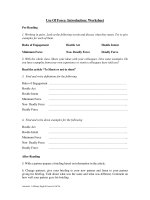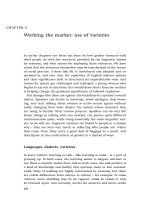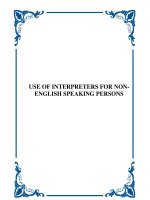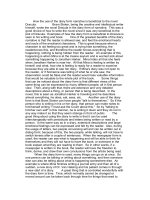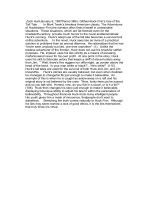Correct use of some conjunctions
Bạn đang xem bản rút gọn của tài liệu. Xem và tải ngay bản đầy đủ của tài liệu tại đây (13.81 KB, 2 trang )
Correct use of some conjunctions
Since as a conjunction
As a conjunction since can refer to time.
Many things have happened since I left Mumbai.
I have never seen them since that unfortunate event happened.
When since is used as a conjunction, it should be preceded by a present perfect tense and followed by a verb in
the past indefinite tense.
Or
The conjunction ‘or’ is used to introduce an alternative.
You must work or starve.
You may take this coat or that one.
The conjunction ‘or’ is nearly equivalent to ‘and’.
Our troops were not wanting in strength or courage, but they were badly fed.
If
If can mean ‘on the condition that’.
If he is here, we will meet him.
If he wants to succeed, he has to work hard.
If can mean ‘whether’.
He asked me if I would help him.
If can also be used to express a wish or surprise.
If only I knew more people.
That
That is a demonstrative pronoun. It is also used as a conjunction. As a conjunction, that has retained much of its
force as a relative pronoun.
Hence the sentence ‘I heard that you were looking for a job’ may be transposed into ‘You were looking for a job: I
heard that.’
The conjunction that can be used as an equivalent to because.
He was annoyed that he was contradicted. (= He was annoyed because he was contradicted.)
That can also express a purpose.
We eat that we may live.
We sow that we may reap.
He kept quiet that the argument would stop.
Stay on top of your writing! Download our grammar guide from www.englishgrammar.org to stay up-to-date.
Powered by TCPDF (www.tcpdf.org)
